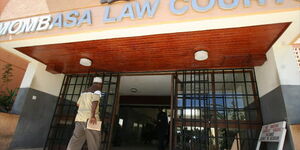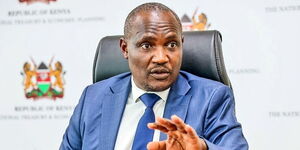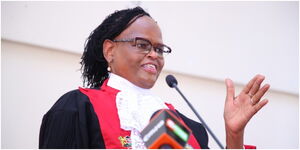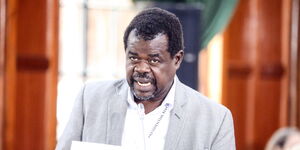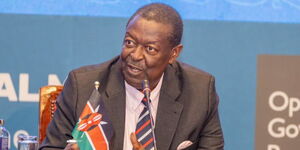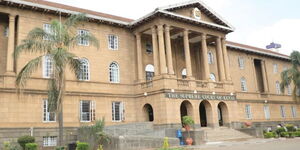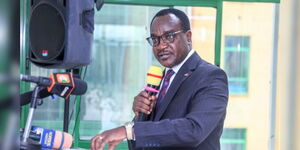President William Ruto sidestepped the judiciary and gazetted the appointment of the new Independent Electoral and Boundaries Commission (IEBC) team.
In a gazetted notice published on Tuesday evening, Ruto appointed Erastus Edung Ethekon as the Chairperson of the IEBC for a term of six years.
The appointment was made under the powers granted by Article 250(2) of the Constitution, alongside Section 5(2) and Paragraph 4 of the First Schedule to the IEBC Act.
Further, the Head of State formalised the appointment of Ann Njeri Nderitu, Moses Alutalala Mukhwana, Mary Karen Sorobit, Hassan Noor Hassan, Francis Odhiambo Aduol, and Fahima Araphat Abdallah to be commissioners of the electoral body.
The six will also serve in the commission for six years, with the huge task ahead of getting the electoral body in order ahead of the 2027 elections.
“In exercise of the powers conferred by Article 250(2) as read with Section 5(2) of the IEBC Act and Paragraph 4 of the First Schedule, I, William Samoei Ruto, President of the Republic of Kenya, appoint Ann Njeri Nderitu, Moses Alutalala Mukhwana, Mary Karen Sorobit, Hassan Noor Hassan, Francis Odhiambo Aduol, and Fahima Araphat Abdallah to serve as members of the IEBC for a six-year term,” read part of the gazette notice by Ruto.
In a ruling delivered on May 19, the High Court issued conservatory orders blocking vetting and approval of Ruto's IEBC picks by the National Assembly, pending the determination of a petition filed by two individuals.
The petitioners, from a civil society group, also claimed that some names on the IEBC interview list were included unconstitutionally and raised concerns about interference from the Executive.
“That the nominations are not only unlawful but also unconstitutional for failing the requirements of public appointments as espoused under Articles 10, 232 and 250(3) & (4) of the Constitution of Kenya, 2010, as read with the Independent Electoral and Boundaries Commission Act and the Public Appointments (Parliamentary Approval) Act, Chapter 7F, Laws of Kenya,” the petition read in part.
In a separate ruling delivered ten days later, the High Court allowed the National Assembly to proceed with the vetting of the seven nominees.
However, the court maintained orders barring their gazettement and swearing-in, pending the hearing and determination of the petition challenging the selection process.
Legal experts weighed in on the gazettement, terming it a gross violation of the Constitution, a move they say could see the matter return to court with a fresh legal challenge.


